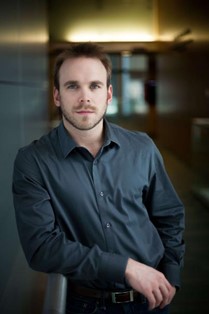
- This event has passed.
Canadian Neuroscience Seminars – Post-Doc series – Simon A. Sharples and Amy Smith-Dijak
2023-09-07 @ 15:00 – 16:00

DATE: Thursday, September 7, 2023
TIME: 12pm PT/3pm ET
ZOOM LINK: https://utoronto.zoom.us/j/85845251397

SPEAKER: Simon A Sharples, University of St Andrews
TITLE: Fast motoneurons are not just ‘big’ slow motoneurons: roles for active properties in maintaining the orderly recruitment of motoneuron subtypes
Simon Sharples received his Bachelor’s degree (BSc in Kinesiology) in 2010 from Wilfrid Laurier University, followed by an MSc degree with Jayne Kalmar in 2012 where he studied cortical plasticity in humans during neuromuscular fatigue and in Parkinson’s Disease. He then completed his PhD in the Lab of Patrick Whelan at the University of Calgary where his thesis work focused on understanding dopaminergic neuromodulation of mammalian spinal circuits using in vitro tools in mice.
Currently, Simon is a CIHR-funded Postdoctoral Fellow in the Lab of Gareth Miles at the University of St Andrews where he studies functional maturation and diversification of motoneuron subtypes during postnatal development in mice. His future work will be directed toward understanding roles for neuromodulatory inputs in shaping motoneuron diversification during postnatal development in health and disease.

SPEAKER: Amy Smith-Dijak, McGill University
TITLE: Axonal dysfunction in a mouse model of ARSACS
Amy Smith-Dijak is a Postdoctoral Fellow at McGill University in Dr. Alanna Watt’s lab. Dr. Smith-Dijak’s work focuses on understanding how neurodegenerative disease impacts how action potentials propagate along the axon. This is done using electrophysiological techniques that allow for the recording of action potentials as they move down the axon, as well as a variety of imaging techniques which enable her to probe the structure and composition of the axon. She is currently focusing on Purkinje cells in ARSACS, an inherited ataxia which is common in the Charlevoix-Saguenay region of Quebec. She hopes that this work will lead both to new treatments for ARSACS and to a better understanding of the role that disruption of action potential propagation plays in neurodegenerative disease generally.
Dr. Smith-Dijak first got into neurodegenerative diseases during her PhD in Dr. Lynn Raymond’s lab at the University of British Columbia. There her work focused on changes to homeostatic plasticity in the cortex during early stage Huntington disease, and how to restore this form of plasticity with the drug pridopidine.
